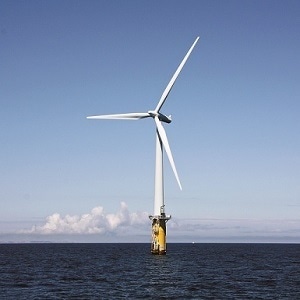Jul 17 2019
AIMPLAS, the Plastics Technology Center, is participating in the FLOTANT project, which aims to develop a solution to produce electricity by installing marine wind farms in water depths of 100 to 600 meters that would reduce on installation and maintenance costs up to 55% to 60% lower as compared to the current technology.
The FLOTANT project is developing a plastic-concrete hybrid system to improve the buoyancy of wind turbines, as well as materials that are more lightweight and resistant to the marine environment.

Rising Popularity of Offshore Wind Farms
Wind farms are a clean, sustainable and independent way to produce electricity on land however, offshore wind farms are becoming increasingly common as it produces energy more efficiently. The current technology for implementing them involves higher installation and maintenance costs.
Also, when there are no offshore locations far enough from the coast at the right water depth (less than 60 meters) where the wind turbine can be anchored directly to the seabed, more expensive systems must be used, such as mooring, anchoring and floating structures.
The Project - FLOTANT
FLOTANT, which began in April 2019, is framed within the European Horizon 2020 program and will last 36 months. The solutions developed in this project will make it possible to install wind turbines of more than 10 MW thanks to an anchoring system made of high-performance polymers that will reduce platform movements.
This solution will consist of a plastic-concrete hybrid floating system, dynamic lightweight wiring and a high-performance power export system. The project has chosen three different environments to install three prototypes:
- dynamic testing equipment for marine components used in the anchoring and power export systems,
- a tank that simulates marine conditions for the prototype of the comprehensive system,
- the Port of Taliarte (Gran Canaria) for characterization of the new polymeric materials under real marine conditions.
AIMPLAS’s Contribution to the Project
AIMPLAS’s role in the project is mainly to develop and optimize the anchoring, wiring and flotation system through the development of thermoplastic and thermoset materials with antifouling and antibite properties.
The result is expected to reduce the cost of producing this type of energy from €107 per MWh in 2018 to €85-€95 per MWh by 2030. This project has received funding from the European Union’s Horizon 2020 research and innovation program.